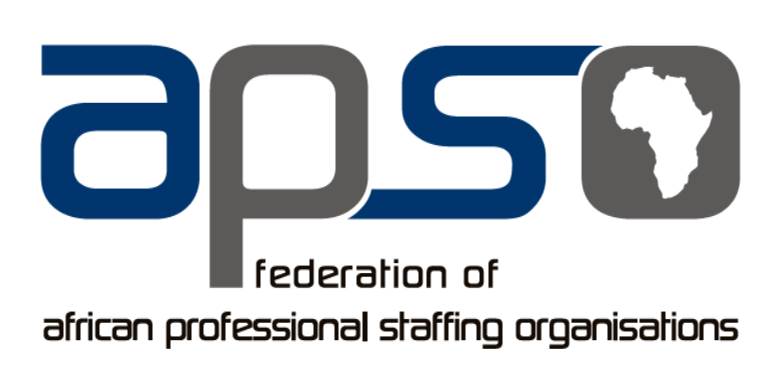Tuesday, 7 August 2018.
YOU CAN STILL USE YOUR TEMPORARY EMPLOYMENT SERVICES PROVIDER!
The Constitutional Court handed down its judgment in the matter, CCT 194/17: Assign Services (Pty) Limited v National Union of Metalworkers of South Africa and Others.
The sole employment judgement does not mean that TES employees become permanent, nor does it negate the important role that Temporary Employment Services (TES) will continue to play in workforce management and enabling skills development and employment in the economy.
At Paragraph 75 of the judgment, importantly confirms that the Temporary Employment Service (TES) remains and that there is no transfer of the employment relationship but rather a continuation of the triangular relationship between the TES and the client, with some changes to the employment relationship.
To read the full press release issued by CAPES please click here
To assist in clarifying the status quo, please find below some of the most Frequently Asked Questions and the answers.
Q: Does the Con Court judgment on sole employment for LRA mean that any TES employees employed longer than 3 months now transfer as permanent employees of the client?
No. It is business as usual.
Sole employment is limited to LRA only, there are several other legislative elements which impact theemployment relationship. The Judgement paragraph 75 clearly explains that there is no transfer of employment and that the triangular employment relationship continues. It reads:
“Section 198(2) gives rise to a statutory employment contract between the TES and the placed worker, which is altered in the event that section 198A(3)(b) is triggered. This is not a transfer to a new employment relationship but rather a change in the statutory attribution of responsibility as employer within the same triangular employment relationship. The triangular relationship then continues for as long as the commercial contract between the TES and the client remains in force and requires the TES to remunerate the workers.”
Q: Which TES employees are affected by this judgement?
Only employees earning below the BCEA threshold, currently R205 433 per annum, who work for more than 3 months. The deeming provision contained in s 198A (3) (b) (i) of the LRA is only triggered if the TES employee is not performing a temporary service. A temporary service means work for a client by an employee:
- For a period not exceeding 3 months;
- As a substitute for an employee of a client who is temporarily absent; or
- In a category of work for any period which is determined to be a temporary service by a collective agreement concluded in a bargaining council, a sectoral determination or a notice published by the Minister.
If a placed employee is performing a temporary service (as defined above), the TES will, for as long as the placed employee performs a temporary service, remain the employer in terms of the LRA.
Q: Can we still use TES providers for workers assigned for longer than 3 months and who don’t meet the definition of “performs a temporary service”?
Yes.
The judgement clearly indicates that the TES and client relationship continues beyond three months, and we believe that for legitimate TES providers where the provisions of the LRA amendments have already been implemented, this judgement doesn’t affect their ability to operate at law.
According to the Constitutional Court, there will be what is referred to as a triangular relationship. There is no “transfer to a new employment relationship but rather a change in the statutory attribution of responsibility as employer within the same triangular employment relationship. The triangular relationship then continues for as long as the commercial contract between the TES and the client remains in force and requires the TES to remunerate the workers.”
Further clarity is gained from paragraph 61 of the Con Court judgement that implies that employees could have a claim on both the TES and the client. The paragraph reads:
“I am persuaded that the sole employer interpretation is not hampered by section 198(4A). The section does not purport to determine who an employer may be from time to time. It provides that, while the client is the deemed employer, the employee may still claim against the TES as long as there is still a contract between the TES and the employee. This is eminently sensible considering that the TES may still be remunerating that employee. The view is buttressed by section 200B, which provides very broad general liability for employers. Section 198(4) and (4A) seems to carve out specific areas of liability for a TES pre- and post-deeming as opposed to the general liability applicable in terms of section 200B.”
As long as the TES continues to remunerate the employee they will meet the definition of an employer under Section 198 (1). The deeming provision provided for in s 198A (3) (b) (i) of the LRA is limited to the LRA only.
If the s198A deeming provision is triggered, it does not mean, by way of example, that the client also becomes the employer for the purposes of the BCEA, SDL and COIDA. The Con Court judgement now clarifies the protections for affected TES workers.
Even with the sole employer interpretation, “a placed employee will retain the right to claim against a TES through section 198(4A) to the extent that they are still remunerated by the TES. The employee is largely protected against the TES regardless of whether the claim is made against an employer. But this liability relates only to claims brought by the employee. The protections afforded by the sole employer interpretation go beyond this. They give employees certainty and security of employment.”
The LRA amendments provide additional protection to those employees under the threshold(R205 433) who work longer than three months in that, in the event of a breach of the LRA, they could take action against either the client or the TES.
Q: Does this affect genuine fixed-term contracts for employees under threshold?
No.
Where employees are employed on justifiable fixed-term contracts for longer than three months, e.g. for a project, seasonal work, absenteeism etc., this judgement has no bearing.
Q: Is there any difference if we are within a Bargaining Council?
In accordance with LRA s198A(1)(c) the Bargaining Council (or sectoral determination) agreement would take precedent. We recommend that you review the existing agreement in relation to the management of TES workers placed within your sector.
Q: What about equal treatment between TES employees and permanent counterparts?
Equal treatment of TES employees for remuneration and benefits was already dealt with in the LRA amendments effective 1 April 2015 and did not form part of this matter.
If a TES employee is deemed to be an employee of the client, he/she must be treated on the whole no less favourably than an employee of the client performing the same or similar work, unless there is a justifiable reason for different treatment.
For TES employees covered by bargaining councils, equal treatment is clearly entrenched in the agreements.
For those who are outside bargaining sectors, benefits developed to accommodate the uniqueness of agency workers are available. The CAPES Provident fund has been in existence for almost a decade and provides specific, affordable retirement benefits for TES employees, enabling continued contributions (and long-term sustainability) despite transitions between workplaces, sectors and agencies. For more information please contact pr@capes.org.za
Q: What value is there in using a TES after the Con Court judgement?
Whilst new conditions have been introduced through the judgement, these can be compliantly addressed to ensure both service delivery to clients to ensure they have the labour market flexibility and workforce management expertise they seek, and that the added protection to vulnerable workers is implemented. Temporary Employment Services (TES) play a critical role in workforce management and continue to provide support to clients in numerous ways including:
- Recruitment and selection
- Workforce management (manpower req, flexibility, contracting, matching, placing, inducting, PPE)
- Performance management
- Discipline management
- Payroll and benefits administration
- Learnership management
- Skills development and training
- Cash flow management of payroll
Q: How can we find out more detailed information?
The Confederation of Associations in the Private Employment Sector (CAPES) represents the private employment services sector, including temporary employment services, and is actively involved in the process of achieving legal clarity on the LRA amendments. Regular updates are published on the CAPES website.
ABOUT CAPES
The Confederation of Associations in the Private Employment Sector (CAPES) is an umbrella body, formed in 2002, when the need for a unified voice for the South African staffing industry became apparent. CAPES was created specifically to act as the lobbying organisation for the four primary staffing associations, who represent thousands of SME staffing businesses, and several of South Africa’s largest corporate staffing companies.
GENERAL ENQUIRIES:
CAPES Public Relations
Attention: Natalie Singer
Email: pr@capes.org.za
Website: www.capes.org.za








